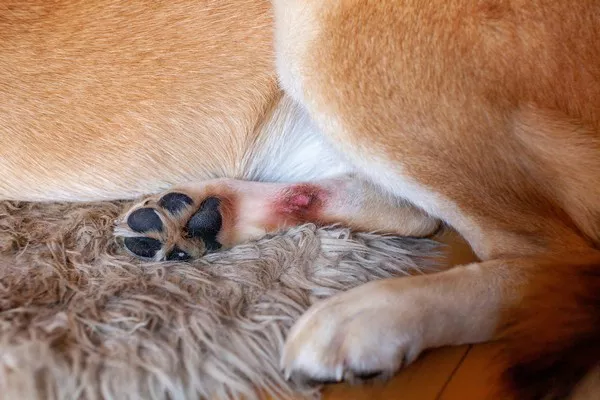Ringworm, despite its name, is not caused by a worm but rather by a fungus that infects the skin. It is a common and treatable condition, but many people wonder whether it can leave lasting scars. To understand this, it’s important to delve into the nature of ringworm, its treatment, and its effects on the skin.
Understanding Ringworm
Ringworm, or dermatophytosis, is a fungal infection that affects the skin, scalp, and nails. The name “ringworm” comes from the characteristic red, ring-shaped rash that can appear on the skin. This infection is caused by various fungi, including those belonging to the Trichophyton, Microsporum, and Epidermophyton genera. Despite its name, there are no actual worms involved in ringworm.
Ringworm is highly contagious and can be transmitted through direct contact with an infected person or animal, or by touching contaminated objects such as towels, clothing, or gym equipment. The fungi that cause ringworm thrive in warm, moist environments, making certain places like locker rooms, swimming pools, and communal showers common sites for transmission.
Appearance of Ringworm
The appearance of ringworm on the skin can vary depending on the location and severity of the infection. Typically, it manifests as a red, scaly patch or a circular rash with raised edges. The affected area may be itchy, and the rash can spread gradually if left untreated.
On the scalp, ringworm can cause hair loss and scaling, leading to bald patches. When it affects the nails (known as onychomycosis), it can cause them to become thickened, discolored, and brittle.
Treatment of Ringworm
The good news is that ringworm is usually treatable with antifungal medications. The specific treatment depends on the location and severity of the infection. Topical antifungal creams, lotions, or powders are often sufficient for mild cases of ringworm on the skin. In more severe or widespread cases, oral antifungal medications may be prescribed.
For scalp ringworm, oral antifungal medications are typically required for effective treatment. It’s important to follow the prescribed treatment regimen and continue treatment for the recommended duration, even if the symptoms improve before the medication course is completed. This helps prevent recurrence of the infection.
Does Ringworm Cause Scarring?
The burning question for many individuals dealing with ringworm is whether it leaves permanent scars. The answer depends largely on the promptness of treatment and the individual’s response to treatment.
In general, ringworm does not typically cause permanent scarring when treated promptly and appropriately. Most cases of ringworm resolve without leaving any lasting marks on the skin. However, in certain situations, particularly when the infection is severe or has been left untreated for a prolonged period, scarring can occur.
Scarring from ringworm may result from excessive scratching of the affected area, which can lead to skin damage and secondary bacterial infections. In some cases, the healing process can cause changes in skin pigmentation, resulting in lighter or darker patches of skin that may persist after the infection has cleared.
Preventing Complications and Scarring
To minimize the risk of scarring from ringworm, it’s important to take the following preventive measures:
1. Early Treatment: Seek medical attention promptly if you suspect you have ringworm. Early treatment can prevent the infection from spreading and reduce the risk of complications.
2. Avoid Scratching: Although ringworm can be itchy, resist the urge to scratch the affected area to avoid damaging the skin.
3. Follow Treatment Guidelines: Adhere to the prescribed treatment regimen and complete the full course of medication as directed by your healthcare provider.
4. Practice Good Hygiene: Wash your hands regularly and avoid sharing personal items such as towels, clothing, or hairbrushes with others to prevent the spread of infection.
Conclusion
In conclusion, ringworm is a common fungal infection of the skin, scalp, or nails that can cause red, ring-shaped rashes and itching. With prompt and appropriate treatment, ringworm typically does not leave permanent scars. However, in severe cases or when left untreated, scarring may occur due to skin damage or changes in pigmentation.
If you suspect you have ringworm or notice any unusual changes on your skin, consult a healthcare professional for an accurate diagnosis and appropriate treatment. By taking preventive measures and seeking timely medical attention, you can effectively manage ringworm and minimize the risk of complications or scarring.
Related Topics:


























